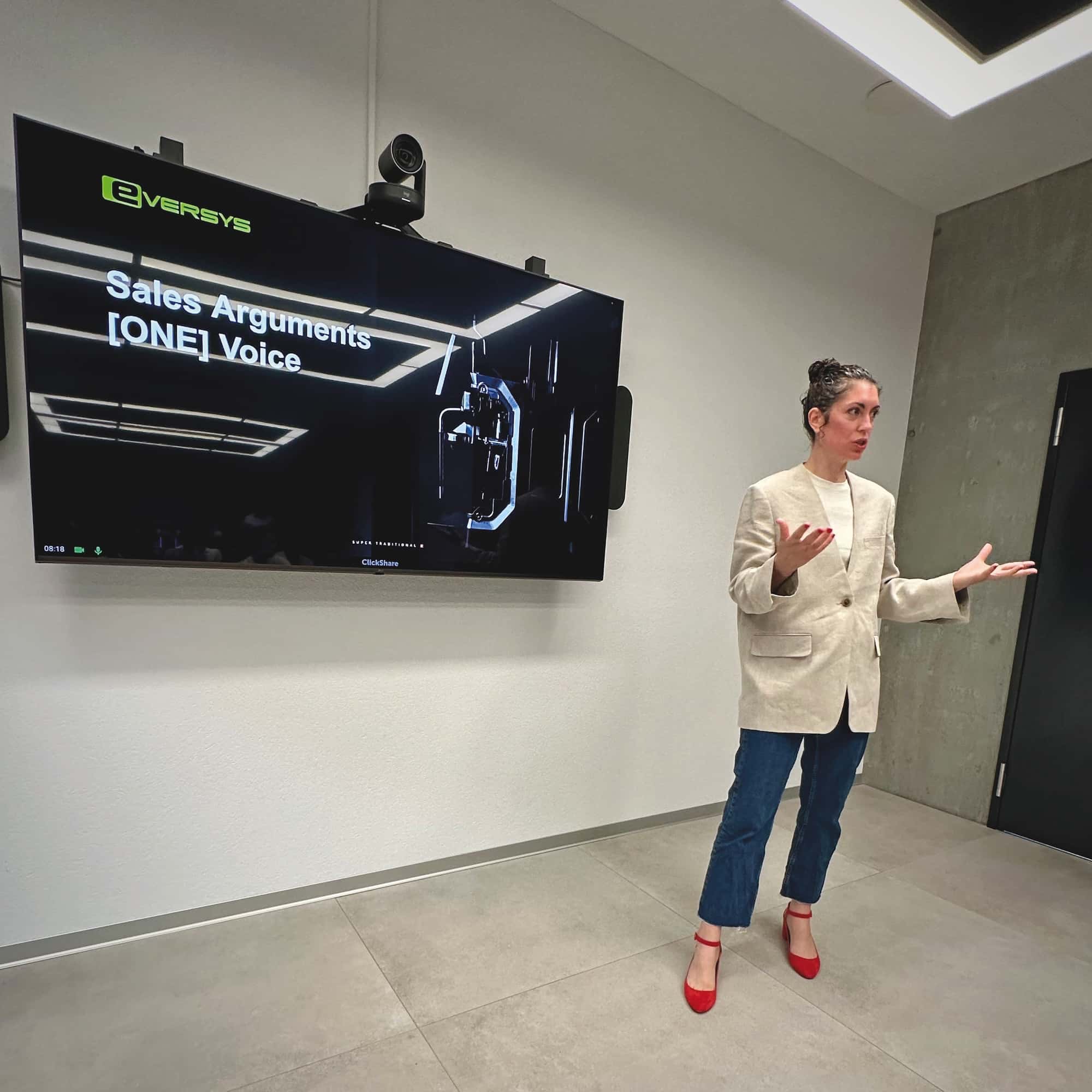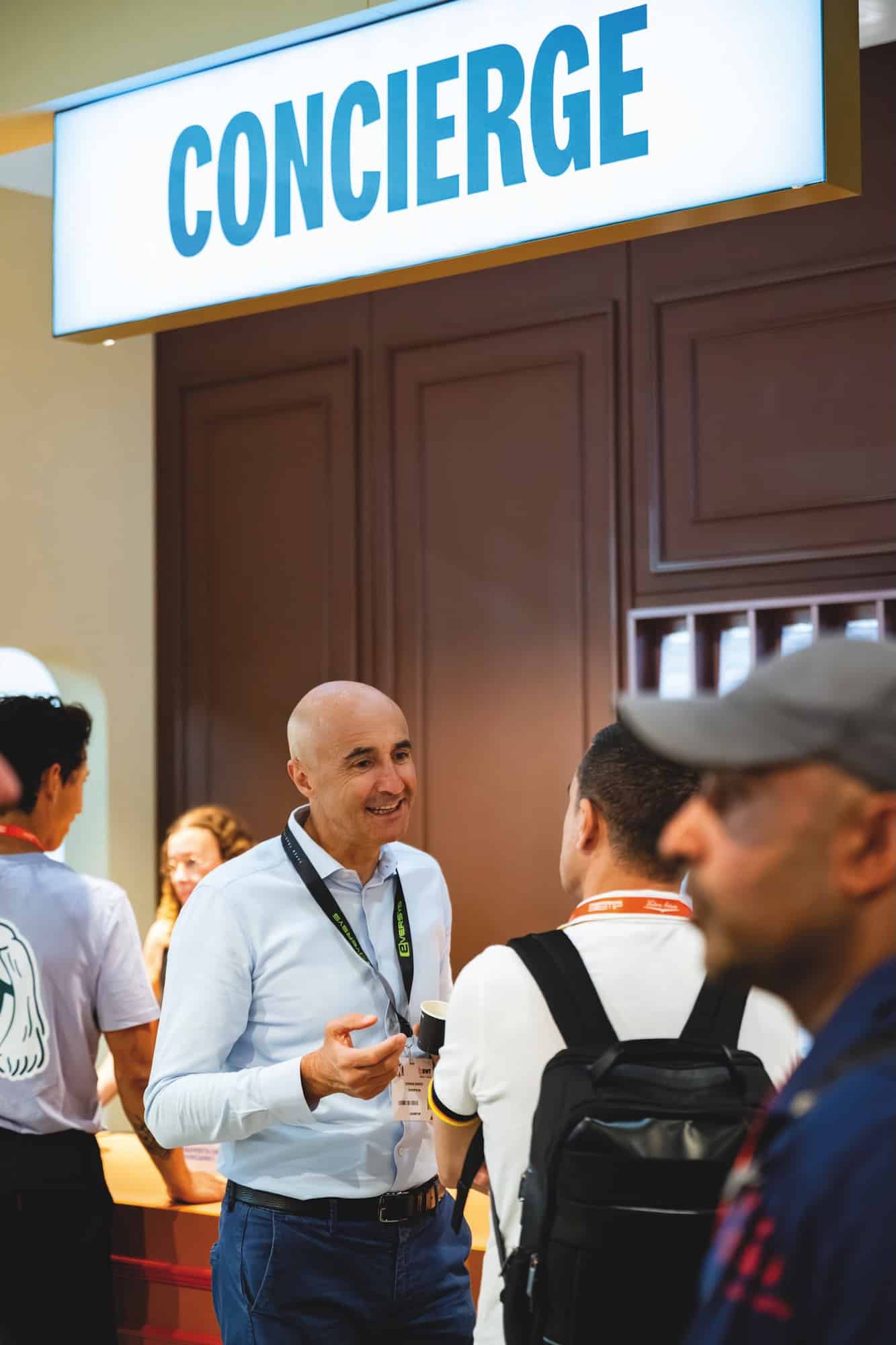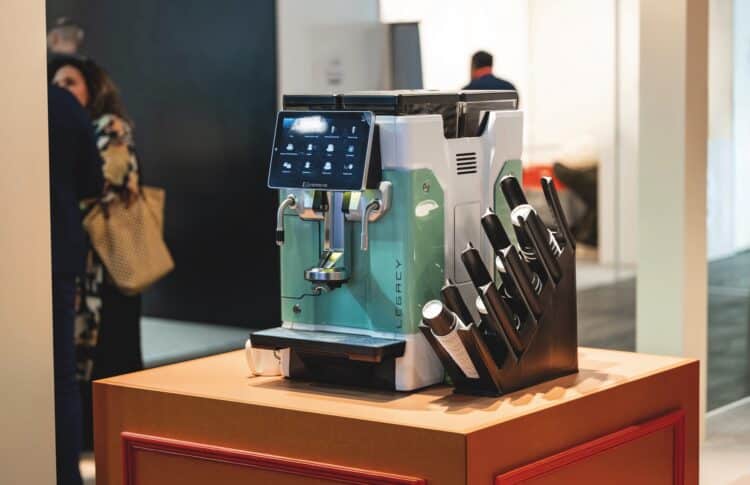Eversys Managing Director Stefano Barato and Marketing Director Miranda Caldwell discuss coffee’s shifting business model, why maintaining value is essential, and the role of automation in this developing landscape.
As leaders of one of the most innovative manufacturers in the industry, Eversys Managing Director Stefano Barato and Marketing Director Miranda Caldwell must have their fingers on the pulse of what’s going on in the wider coffee market. While their day to day is focused on super-automatic espresso machines, they must also be looking at the bigger picture and how broader developments such as green-bean prices, café trends, and consumer expectations will trickle down to their customers.
Like all industries, coffee is continuously evolving. With more than 20 years in the sector in a variety of roles, Caldwell has experienced its evolution. When reflecting on the most significant innovations over the past few years, she highlights the shift in business model across venues serving coffee.
“Previously, there were two distinct types of coffee businesses: specialty venues that charged a premium and served high-grade beans and pourovers, and multi-location enterprises serving commercial-grade coffee on a large scale,” says Caldwell.
“However, the line between these types of venues has now blurred and their business models have shifted. Quality beans are being served in traditionally commercial environments, while specialty cafés are diversifying their menus to cater to a broader audience.”
Caldwell believes this shift is being driven by the consumer, who is increasingly demanding beverage innovation and variety. While the previously distinct business models have become more homogeneous, she says it’s actually created more diversity in the sector.
“Businesses are introducing menus and styles of service that work for their broad range of customers. People used to identify as a Starbucks person or a specialty coffee person, but that’s becoming more interchangeable. Their choice of venue is now being determined by what they’re in the mood for that day,” says Caldwell.
“This is driving innovation in coffee, syrups, alternative milks, and equipment. It’s greatly influencing us at Eversys to modify our products to serve the industry’s dynamic needs.”

Among younger generations, consumption of traditional “pure coffee” drinks such as espresso, latte, and cappuccino is declining. As coffee’s role shifts from being the star of the show to one of a group of ingredients within a beverage, Caldwell says the industry faces a new challenge of maintaining coffee’s value in a way that makes sense from farm to cup.
“With record-high prices and supply issues over the past year, the challenge has become getting the consumer to pay more for coffee. While drinks have become more expensive, is the consumer actually just paying more for syrups, alternative milks, and ice instead of the coffee component?”, she says.
“Maintaining quality is a key to ensuring the value of the coffee is preserved, even within these signature drinks. Eversys’ machines are a great solution to help maintain that value by producing fantastic quality coffee.”
Managing Director Stefano Barato believes Eversys is well positioned to help the industry overcome this challenge. As a super-automatic espresso machine manufacturer established with a focus on exceptional brewing and steaming, he says these functionalities are fundamental in all the brand’s products.
“The way our machines brew coffee and foam milk are pillars of the brand. The objective has always been to deliver the best extraction and to do that consistently. For the milk, the aim is consistent taste, texture, and temperature,” he says.
“To maintain value, of course you need quality ingredients, but you also need the way they are processed – from grinding to infusion to steaming – to deliver the best possible result. We have worked alongside baristas for years to ensure the processes within our machines mirror that of a very skilled industry individual.”
While quality and ensuring a fair price for all parties along the supply chain have long been the focus of specialty venues, these businesses have traditionally been more resistant to adopting automated technology. However, Caldwell says this tide is starting to turn – especially in mature specialty markets such as the United States and the United Kingdom.
“In big cities where we’re clearly seeing the impact of cost-of-living, labour shortages, and price rises, the shift from traditional to super-automatic espresso machines is building momentum,” she says.
“Especially in busier venues, managers and owners are considering how they can speed up service and reduce hours needed for staff training while maintaining quality.
“Interestingly, we’re still not seeing the same uptake in the café sector in mainland Europe and that’s because it only recently started to embrace specialty. They are still in the era of exploring manual coffee tools such as pourovers.”
One of Eversys’ solutions that is proving particularly popular with coffee venues that are shifting towards this more centreline business model is the Legacy machine. With up to four grinders and an optional integrated powder unit, it can prepare a wide variety of drinks to keep pace with expanding menus.
“The Legacy’s four grinders mean a venue can have two specialty espresso options, a coffee for iced drinks, and then a decaf all prepared by the one machine. The powder unit adds an alternative too, such as matcha,” says Caldwell.
“It’s a bean-to-cup machine, but you can do so much more with it. It serves the needs of this new era of coffee shop and the customisation and variety consumers crave.”

Such businesses, especially those with a fleet of machines, are also being lured by the telemetry systems included in many super-automatic machines. Barato says that, although this technology was first introduced to Eversys’ models to help with internal research and development products, it is now a major draw for businesses that want to focus on maintaining quality and consistency.
“Our research department uses telemetry to continuously improve our machines, but the systems have also become a helpful tool for service technicians to monitor the fleet and for roasters and coffee managers to adjust recipes across multiple venues,” he says.
“It’s become a real ecosystem that helps drive the business to become more profitable.”
The Managing Director says the strategic tool will continue to be central to Eversys’ product development.
“We are improving the way our customers can interact with the telemetry platform and we will add more services in the future to make it even more useful to coffee businesses,” says Barato.
In terms of the broader future of automated equipment and its role in the coffee industry, both Barato and Caldwell are hesitant to make any long-term predictions. However, they believe there are still barriers to be broken down and huge opportunity for further innovation.
“The skill of the barista is a critical resource for us. We don’t want to eliminate them – we want to focus their skills on recipe development and service to create additional value for the customer,’ says Barato.
“Our plan is to continue working closely with the barista community to help develop our software and integrate their experience into our machines.”
For more information, visit eversys.com
This article was first published in the November/December 2025 edition of Global Coffee Report. Read more HERE.





